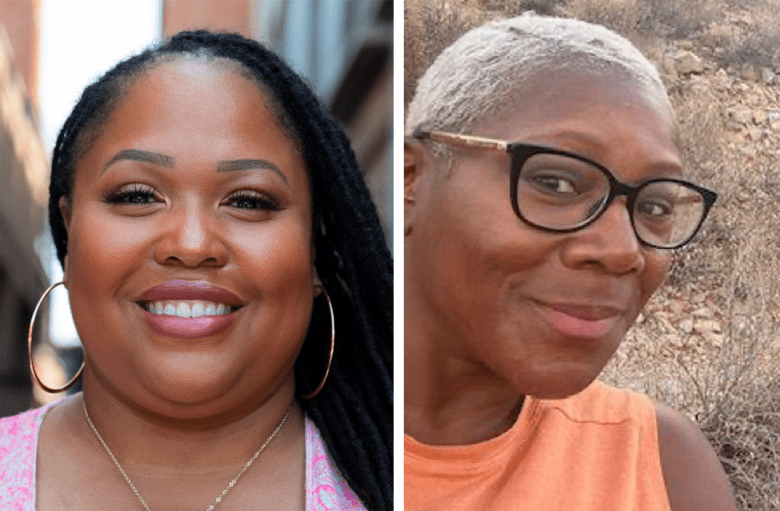Last Updated on April 17, 2024 by BVN
Jessica Pettway did not need to die from cervical cancer. What will we do to make sure that another Black woman does not die? Jessica Pettway, 36, beauty influencer, mom, and wife passed away on March 11, 2024, from cervical cancer.
Black women are constantly forced to disappear or comply with healthcare provider plans without being informed of all of the options. Black women are constantly bombarded with messages of our mortality. What Jessica Pettway’s death reminds us is that Black women encounter the bombardment of racism, sexism and medical dismissiveness.
In her last social media post, Jessica shared how she wanted women to advocate for their own health. We believe that in order for women to advocate for their own health, we must also know what we are advocating for. Black women deserve to be listened to because we know and trust our bodies.
April 11 through 17 is Black Maternal Health Week which was founded by Black Mamas Matter Alliance (BMMA). This week is “a time of awareness, activism and community-building aimed at amplifying the voices of Black mamas, bringing visibility to Black-led maternal health initiatives, and centering the values and traditions of the reproductive and birth justice movements.”
This year’s theme is “Our Bodies Still Belong to Us: Reproductive Justice Now” and given this, we would like to honor Jessica Pettway and highlight that reproductive justice is inclusive of gynecologic care.
Cervical cancer, a gynecological disorder, can affect everyone who has a cervix. People over 30 are more likely to be diagnosed with it. Cervical cancer is mostly caused by persistent infection with specific strains of the human papillomavirus (HPV) virus. A common virus, HPV, is transferred from one person to another during sexual activity. When detected early, cervical cancer is one of the most preventable and treatable cancers.
By combining vaccination, early screening and access to health care we can decrease the number of late stage cervical cancer cases. It is important to know that in the last 50 years, cervical cancer rates have declined, but survival rates have not altered significantly, and there remains notable racial disparities in disease identification.
Unfortunately, the number of women who need to get screened for cervical cancer is rising, and the number of late-stage cases is increasing. This means that by the time we are seen and diagnosed, the cancer is at an advanced stage. As a result, Black women are becoming the face of cervical cancer deaths amid the other health disparities that we face.
As nurse midwives, we take care of people through preventative care and help point people in the right direction when abnormal cervical cancer screenings occur. We do this with referrals to the appropriate providers when high-risk diagnoses are made. As providers, who deeply care about our community, we want to present straightforward points that every Black person with a cervix needs to carry with them so that we do not continue to be the face of these statistics.
- Get checked! Please take care of yourself. We know that you have a lot on your to-do list. Our concern is that YOU are not on this to-do list. Please schedule your annual well-person appointment (dental and optical appointments as well). No shade. We need to schedule ours too! We understand that going to see your healthcare provider when you are healthy doesn’t seem that important. But, it is.
- Don’t discount abnormal symptoms. If it seems abnormal to you, then go get checked! Cervical cancer sometimes does not present with major symptoms. But if you are noticing things that are concerning, it is important for you to report these things to your trusted healthcare provider.
- Trust your body. As two Black midwives, we trust and believe when you are concerned about your body. We see you and understand that your path to health might not be linear due to racism, implicit bias and the world’s perception of us.
As midwives, we want to be partners in your health. We represent a population of providers who are ready, willing and able to care for you. We are honored to walk with you through all the chapters in your life. You are the boss of your body and we believe this. We see you. We believe you. We love you. You are your biggest priority and in order to continue the ever-growing list of “to-do’s”, let’s — together — continue the conversations about how to take care of ourselves.
Aiyana Davison (she/her) is a Certified Nurse Midwife and Women’s Health Nurse Practitioner currently practicing in Southern California. While she has worked for the last eight years at a large hospital-based teaching facility, she recently started her own homebirth practice, The Village House, Inc. Aiyana has been featured on a wide variety of platforms including ESSENCE, Parents, Peanut, Elvie, Ovia Health and Mama Glow. Her work focuses on healing through sharing and vocalizing stories, supporting Black people as they traverse healthcare especially within pregnancy, birth and postpartum, and educating those interested in midwifery.
Lodz Joseph-Lemon (she/her) is a Certified Nurse Midwife currency practicing in Southern Arizona. She has presented at the American College of Nurse Midwives, American Public Health Association, Nurses for Sexual and Reproductive Health and National Black Midwives Alliance. Lodz has been on panels addressing reproductive health and justice, queer health and rural health. Her work focuses on amplifying “invisible” voices, mentorship and midwifery education and queer health.




